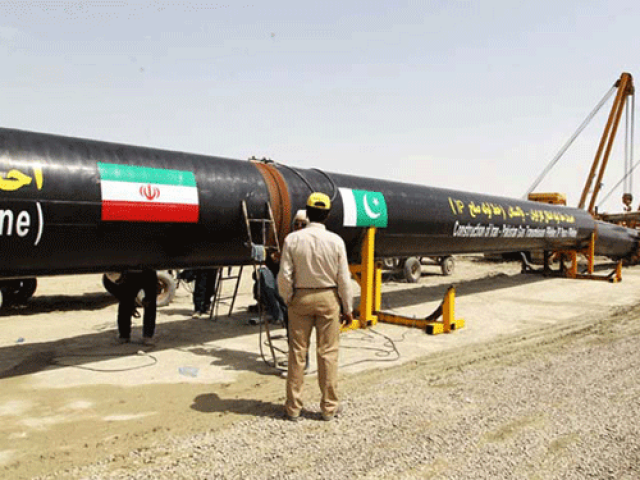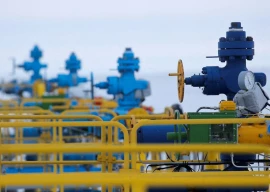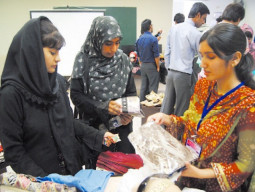
“We can look at it (Russian plan to build the offshore gas pipeline); any donor investment in infrastructure either from Russia, China, the World Bank or the Asian Development Bank and any investment for the benefit of Pakistani people and economy, we support it,” he said while talking to a group of journalists.
“We don’t have any particular views about where the money comes from; we support the government of Pakistan in improving lives of the people.”
Saying that Pakistan was a sovereign country, he emphasised that they backed the Iran-Pakistan gas pipeline project - an investment that was critical for Pakistani people and economy.
Responding to a question about the change in USAID investment priorities under the Trump administration, Bisson pointed to US Secretary of State Rex Tillerson’s trip to Pakistan where he talked about education, health care and economy.
The US wanted to work together with Pakistan and strengthen people-to-people ties, he said while outlining the support extended to 30 universities in Pakistan, especially the provision of scholarships.
“We have supported over 18,000 students and it has a huge impact; we want to continue that support,” he remarked.
About the export of liquefied natural gas (LNG) by US companies, Bisson explained that it depended on the market situation as American gas companies were looking for buyers around the world because they had surplus LNG.
“If you have good terminals and gas transportation infrastructure from the port to local markets, I guess they will be willing to sell,” he said.
US oil and gas giant ExxonMobil had expressed interest in constructing an LNG terminal at Port Qasim, but it recently pulled out of the project.
Pakistan, Iran, Turkey increase bilateral trade with Qatar following blockade
Power production
Talking about cooperation in civil nuclear technology, Bisson said he was not aware of such an opportunity, but USAID had focused on renewable wind and solar energy as the technology was simple and could start electricity generation in 18 months.
“There are large dam projects which could take 10 to 15 years. If we look at clean solar and wind energy, it is very fast and can easily to attract private-sector investment,” he elaborated.
Bisson called Balochistan and Sindh very rich in renewable energy resources where USAID had recently been engaged in different projects.
“We have poured $1 billion into the energy sector in the form of grants, not loans, since 2010 and the production capacity has gone above 3,000 megawatts for the benefit of 36 million Pakistanis,” he said. He highlighted that General Electric had been injecting $240 million into 126 turbines in Sindh whereas USAID provided technical assistance to put in place infrastructure for power generation.
He recalled that the US was the first country to recognise Pakistan and it financed the country’s first two power projects - Tarbela and Mangla, which were the largest dams in the world with large-scale manufacturing and engineering works.
“We are still assisting Pakistan in upgrading some turbines; we have helped in increasing electricity supply,” he said.
When his attention was drawn towards lack of interest by the US in funding new hydroelectric power projects like Dasu and Diamer Bhasha dams, he argued that their budget was going down and there were funding limitations.
“We have … much more funding for technical advisory services and are looking how we can encourage the private sector to invest,” he said.
Pakistan, Iran to enhance cooperation in public health sector
Agriculture
Speaking about cooperation in the field of agriculture, Bisson said USAID was looking at institutions as to how scientists and farmers could be trained and was working closely with provincial governments.
“We have a very interesting programme to help small women farmers to raise goats and improve their stock; the same approach will be adopted for the dairy sector in order to improve milk yield of cows to help farmers increase their income,” he said.
In an attempt to encourage more lending to enterprises, USAID provides $60 million of seed money to four banks.
“We will provide seed money to banks which will, in turn, increase their own capital and lend more to small and medium enterprises,” Bisson said.
Published in The Express Tribune, December 14th, 2017.
Like Business on Facebook, follow @TribuneBiz on Twitter to stay informed and join in the conversation.
1724760612-0/Untitled-design-(12)1724760612-0-405x300.webp)
















COMMENTS (3)
Comments are moderated and generally will be posted if they are on-topic and not abusive.
For more information, please see our Comments FAQ